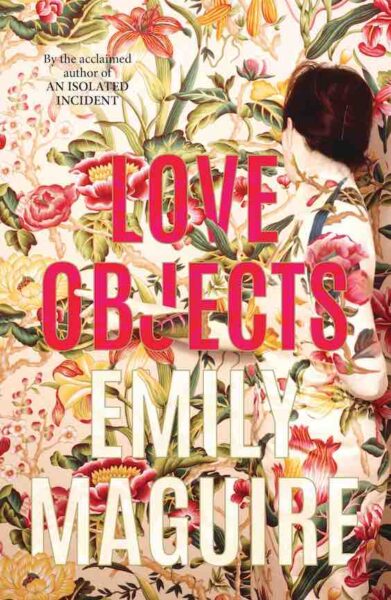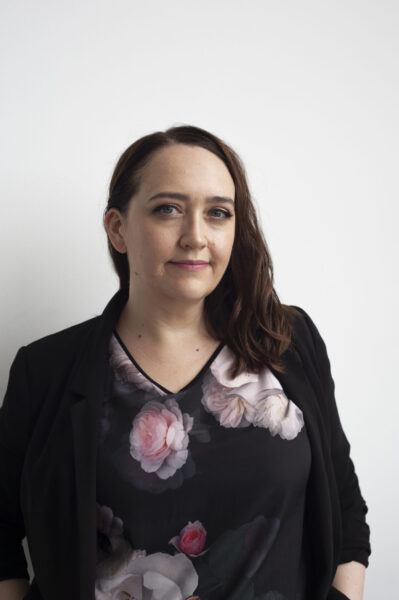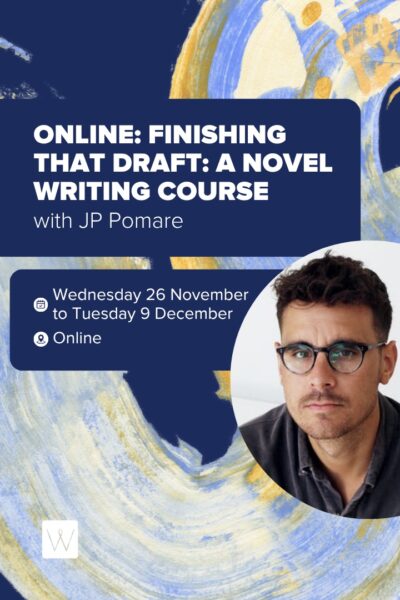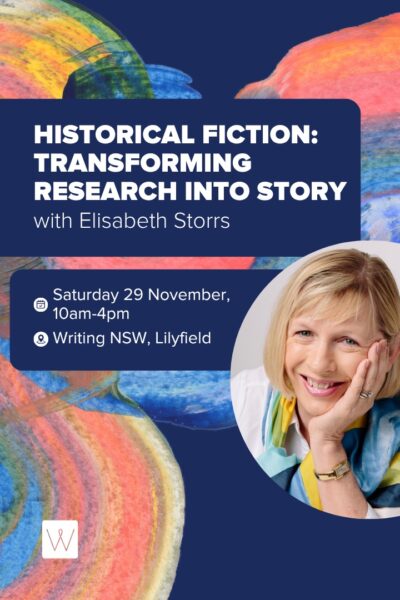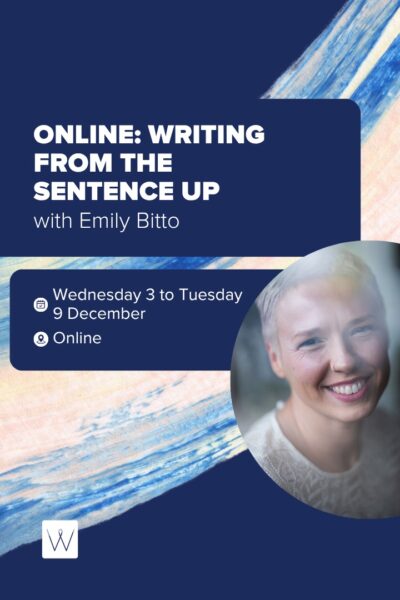Year of the Novel
 Emily Maguire
Emily Maguire
Phase One: 8 x Tuesdays: 6, 13, 20, 27 Feb, 12, 19, 26 March, 2 April 6:30-9:30pm (1 week break halfway through)
Phase Two: 8 x Tuesdays: 21, 28 May, 4, 18, 25 June, 2, 9, 16 July 6:30-9:30pm (1 week break about halfway through for Queen’s birthday)
Phase Three: 8 x Tuesdays: 10, 17, 24 Sept, 1, 15, 22, 29 Oct, 5, 12 Nov celebration 6:30-9:30pm (1 week break about halfway through in second week of school hols)
Prices below are for all three phases, with 10% discount.
Full Price: $2620
Member: $1970
Conc Member: $1700
This course is no longer available to enrol. Sign up for our waitlist here to find out when it’s running again. In the meantime, check out our list of current courses or sign up for our Newsbite weekly newsletter for updates.
This novel writing course, Year of the Novel with Emily Maguire, will be held at Writing NSW in Sydney.
Make 2024 the year you finally write that book in this course from acclaimed author Emily Maguire. Over three phases of eight weeks each, you’ll receive the tools, support and encouragement you need to plan, write and edit your novel.
Is this course right for you? Read our FAQ before enrolling>>
Course Overview
In the first phase, we’ll work on getting the bare bones of your novel down on paper (or screen). We’ll talk about generating ideas and planning, and look at the basic elements of fiction – point of view, voice, narration, character, plot, dialogue and setting.
In the course’s second phase we’ll put some flesh on the bones of your novel, looking at structure, style and theme, and going deeper still with character, voice and plot. As we approach the year’s half-way mark we’ll also talk about how to stay focused and motivated to see this thing through to the end.
Finally, in phase three, we’ll work on turning your very good novel into a brilliant one. We’ll cut the fat, plump up the too-lean bits, polish the language and ensure you have the knowledge and skills necessary to launch your novel into the world.
Throughout, Emily will use examples from classic and contemporary fiction and from students’ work-in-progress to explore the topics covered, and guest speakers will share their insights to further expand your understanding of how published writers do what they do.
At the end of the year, we’ll celebrate your accomplishments by throwing a party at which friends, family, other writers and industry insiders can hear you read from your novel.
You should come to the first class with a specific work-in-progress or idea for a novel. Sharing and discussion will be encouraged, and there will be ample opportunity for you to speak to the group about how various techniques and lessons may be applicable to your specific project, however, one-on-one detailed feedback from the tutor will be limited.
To benefit from this course, you should be working on a novel. You can contact us with any questions before enrolling.
If the full-year course is not sold out prior to commencement, each phase will be made available as a separate course for individual enrolment. If the full course does not sell out by early 2024, enrolments in Phase One only will be made available. You can join the waitlist here if you would like to be notified in the event of this happening.
**Please note that the full-year course has generally sold out prior to commencement in recent years, and it has not been possible to open individual phases for bookings.
**The in-person and online Year of the Novel courses are also designed to run as completely separate streams and therefore swapping between the two is not possible.
Phase One: Writing the bones
This phase is all about getting the bare bones of your novel down on paper (or screen). We’ll talk about generating ideas and planning, and look at the basic elements of fiction – point of view, voice, narration, character, plot, dialogue and setting.
1. Introduction and planning
Setting goals, creating structure, identifying obstacles and figuring out ways to get past them.
2. Inspiration
Generating ideas, re-invigorating memories, stealing from life, stealing from history and making the old and tired, vigorous and new.
3. Story and plot
The difference between story and plot, and how you can make one into the other.
4. Character
In this session we’ll discuss what makes a character complex and compelling and what you can do to make your characters as alive on the page as they are in your head.
5. Point of view and voice
We’ll talk about the advantages and disadvantages of first, second and third POV, and which works best in what circumstances. We’ll also consider the relationship between POV and voice.
6. Showing and telling
Beginner writers are often told to ‘show, not tell’, but it’s not as simple as that. This week we’ll talk about the difference between showing and telling, and how to get the balance right.
7. Dialogue
Dialogue is an essential tool in both characterisation and plot development. We’ll discuss how brilliantly written dialogue can make your characters more believable, your plot more suspenseful and the world of your novel more vibrant.
8. Setting
Using the details of time and place to create atmosphere and solidify your invented world.
Phase Two: Muscles, guts, flesh and blood
Phase two is all about putting flesh on the bones of your novel, giving your story depth and force and vigour by looking at structure, style and theme, and going deeper with character, voice and plot. As we approach the year’s half-way mark we’ll also talk about how to stay focussed and motivated to see this thing through to the end.
1. Workshopping what needs to be done
Whether you’re back from the break after Phase One, or starting with us for the first time, this is a week to take stock of your work in progress.
2. Structure
Structure is what turns a collection of scenes into a satisfying novel. We’ll talk about scenes and story arcs, and look at some common structural templates.
3. Character: going deeper
Avoiding stereotypes, identifying archetypes, writing across gender and cultural lines and making full use of minor and supporting characters.
4. Advanced plotting: the relationship between character and plot
Is your character mostly pulled through events by twists of fate or is your plot driven by choices your character makes? We’ll look at how integrating character and plot makes both elements stronger.
5. Suspense, story questions and narrative drive
This is where we ask ourselves: how am I going to keep the reader turning pages? We’ll look at backstory, time-jumps, transitions and pacing.
6. Voice, tone and style
What is voice and how do you find, or develop, yours? What’s the relationship between voice and tone? We’ll talk about metaphor, imagery and finding the exact right word every time.
7. Point of view: going deeper
Who’s telling this story? What do they know and how do they know it? How does ‘head-hopping’ differ from omniscient POV? And why does any of this matter? Can’t we just tell the story as it comes out? Answers to these questions and more as we dive deeper into the wonders of POV.
8. Forging on
We’ve been working on our novels for over half the year by now. It’s time to talk about smashing writer’s block, pushing through frustration and dealing with doubt.
Phase Three: Nip, tuck, primp and preen
This is where we take a long hard look at your very good novel and figure out how to make it brilliant. We’ll cut the fat, plump up the too-lean bits, polish the language and do whatever else is necessary to ensure your novel is ready to face the world.
1. Revision and editing basics
Learning to read like an editor, and the difference between structural, line and copy-editing.
2. What’s missing?
Every novel-in-progress has weak points and this week we’re going to confront yours head on. Whether it’s a weak antagonist, a giant plot line or dodgy dialogue we’ll work one-on-one to pin-point your problems and come up with strategies to fix them.
3. What needs to go?
You’ve done a lot of work since you first began this writing journey. Now it’s time to go back and pull down the stuff you no longer need. We’ll pull out the scissors and ruthlessly cut out all those no-longer necessary explanations, descriptions and conversations.
4. Beginnings
It may seem a bit late to be talking about beginnings, but it’s often only once you’re close to the end that you can see where you should have begun! This week is all about making sure your novel starts where, and how, it needs to (know that you know where it’s going).
5. Endings
Endings are tough, but we’re going to be tough right back at them! We’ll talk finales, climaxes, cliffhangers, epilogues, the difference between an open-ending and no ending at all.
6. Word by word
This week we go micro—considering the rhythm and flow of sentences and hunting down filter words, cliches and clumsy constructions.
7. Over to you
This week’s content will be determined by the needs and concerns of the students, and will include one-on-one time with the tutor for each student.
8. Where do we go from here?
Freelance editors, manuscript assessment, agents, publishers, competitions and more.
Participant Requirements
Pen and paper or preferred device for writing. Please ensure your device is charged. You should come to the first class with a specific work-in-progress or idea for a novel.
This course is designed for writers of fiction. If you have a narrative non-fiction manuscript and are interested in enrolling in this course, please contact us to discuss.
Reviews
‘[I liked] the ongoing nature of the course, community and accountability, Emily’s kind and supportive nature helped build confidence in my own abilities and a desire to persist despite the challenges faced.’ – Andrew, Year of the Novel 2022
‘I started the course with a scrappy collection of half-written scenes. Emily’s keen insights and generous feedback utterly transformed my manuscript. The course content is a brilliant mix of pragmatic and inspiring writing advice. Emily created a warm and supportive learning environment, which always left me feeling invigorated and motivated to write. I can’t recommend the course highly enough!’ – Fiona, Year of the Novel 2021
‘After a year with Emily and my brilliant classmates, I struggle to see how anyone could write a novel on their own. My writing has gone from strength to strength, as has my manuscript — and my confidence! I’ve loved every minute. Enormous gratitude for this wonderful course.’ – Jen, Year of the Novel 2021
More from Writing NSW
Check out our full range of in-person writing courses in Sydney, our online writing courses and our feedback programs to see how we can help you on your writing journey. Find out about our grants and prizes, as well as writing groups across NSW, and sign up to our weekly newsletter for writing events, opportunities and giveaways.
